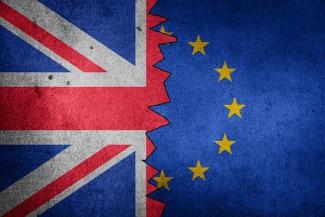Intellectual Property Rights After Brexit
Matthew Howe 14-01-2019
After long periods of negotiation, the UK and EU have reached a provisional and draft form of agreement on Brexit.
The draft agreement is of course wide ranging, but one particularly interesting factor, which has not been much discussed, is what will happen to intellectual property rights.
The current position stands that owners of trademarks or designs registered within any EU country, are protected in all of the others. There have been fears that once the UK leaves the EU, that protection would be lost.
Article 54 of the draft withdrawal agreement states that owners of intellectual property within the EU will continue to be awarded protection within the UK, post Brexit. Owners of already registered rights within the EU will not have to reapply or have their applications re-examined and instead will have their intellectual property rights within the EU automatically transferred to intellectual property rights within the UK.
The effect of the draft agreement is that this will only apply to owners of EU trademarks or designs, provided they have been registered or granted before the end of the transition period. The UK is supposed to leave the EU in March 2019 and the transition period is supposed to last until December 2020. Any trademarks or designs registered or granted within the EU after the transition period ends, will not automatically have protection within the UK.
Being able to register intellectual property rights such as trademarks at an EU level, giving them protection in all member states, has been crucial in preventing infringers from hiding behind borders to avoid infringement claims. Under the present arrangements, it does not matter if an infringer takes a company's logo only used in France and tries to use it in Germany, the owner in France will still be able to bring an infringement claim if their trademarked logo is registered at an EU level.
There is a real risk that post-Brexit, and after the transition period has ended, that those seeking to protect their intellectual property rights could find they have new difficulties to overcome. Technically, proceedings could be required in several different legal jurisdictions, which would be expensive and time consuming, and probably beyond the reach of small companies seeking to protect their rights.
The fact is that nobody knows for certain yet what will happen, but if you have intellectual property rights that require protection, contact us sooner rather than later, to take advantage of the current legal position.

